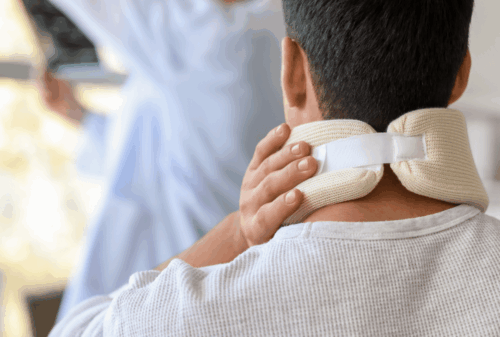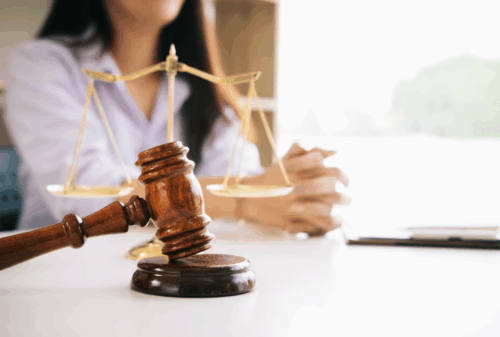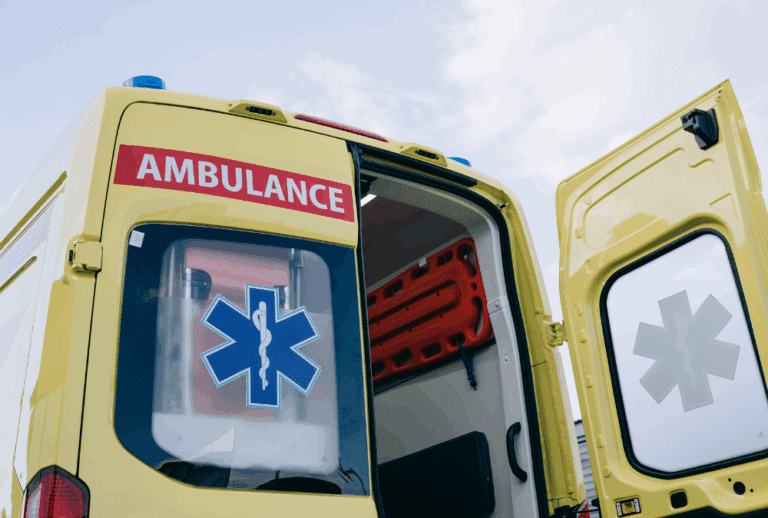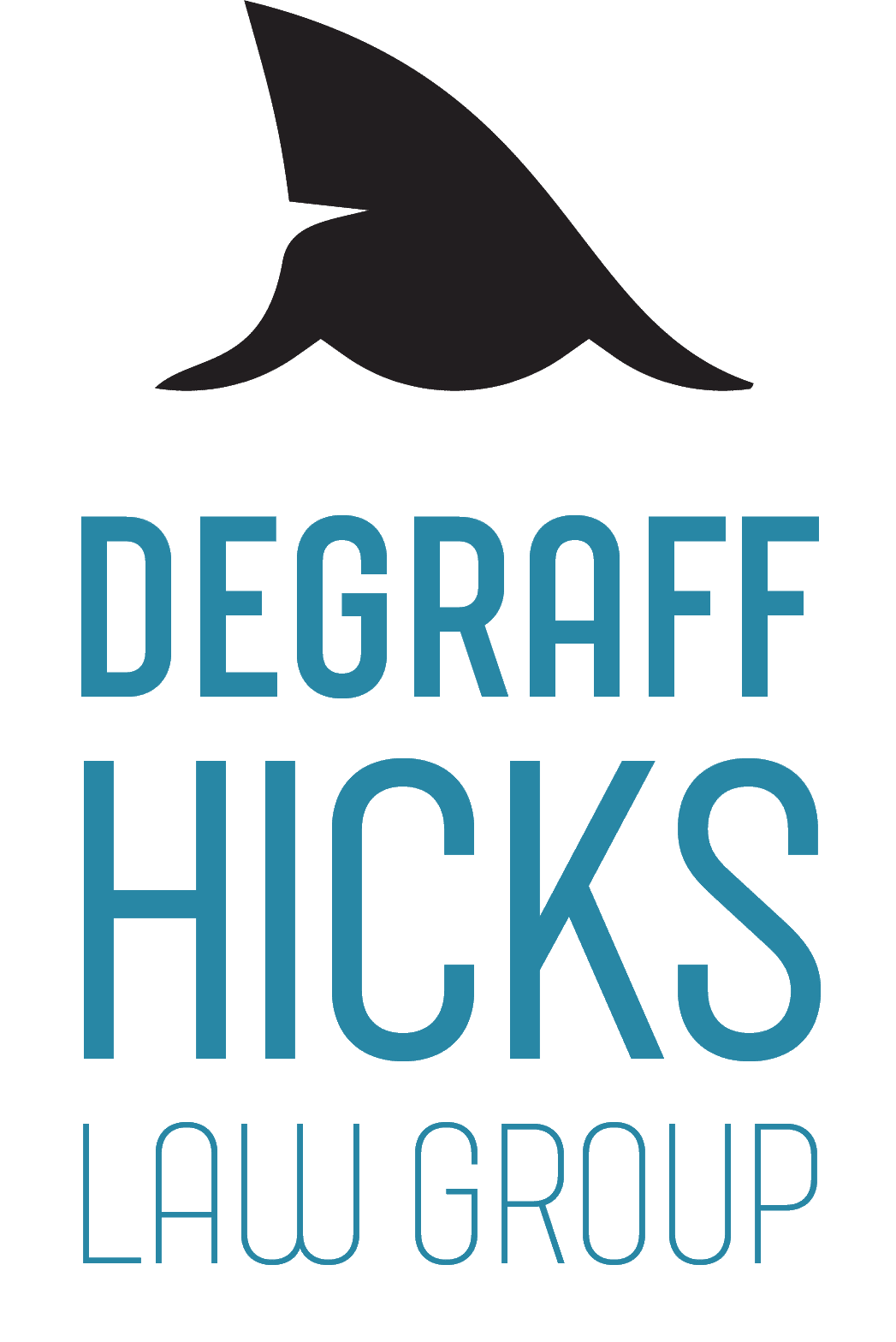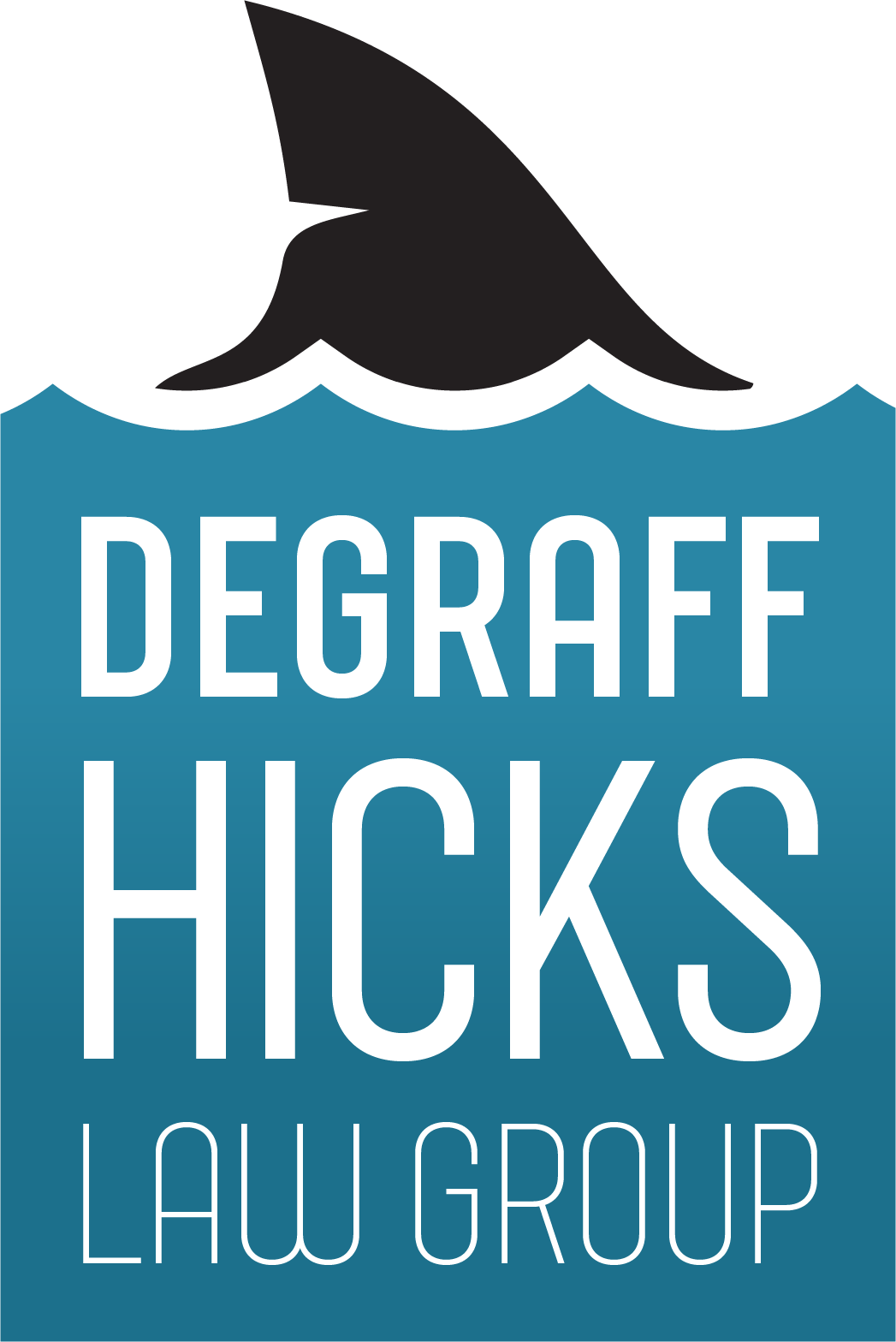Life changes in seconds. One moment you’re living normally, the next you’re dealing with injuries, medical bills, and lost wages. Personal injury accidents happen daily in Cocoa Beach, Florida, leaving victims confused about their legal rights.
At DeGraff Hicks Law Group, we understand the overwhelming stress you face after an accident. You don’t have to figure this out alone.
Our experienced Cocoa Beach personal injury lawyers review cases for free and only get paid if you win. Call (321) 44-SHARK today to discuss your rights.
Do I Have a Personal Injury Case?
Personal injury law in Florida covers situations where someone else’s careless actions harm you physically, emotionally, or financially.
Several factors determine case validity:
- The other party acted negligently or recklessly
- Their actions directly caused your injuries
- You suffered measurable damages from the incident
- The incident occurred within Florida’s statute of limitations
Not every accident creates a personal injury case. You need clear evidence linking the other party’s negligence to your specific injuries and losses.
Types of Personal Injury Cases We Handle
Here are some of the cases that our experienced Cocoa Beach personal injury lawyers handle:
Car Accidents
Car accidents represent the most common personal injury cases we handle. Cocoa Beach’s busy roads witness thousands of collisions annually, many resulting from distracted driving, speeding, or impaired driving.
Common car accident injuries include:
- Whiplash
- Broken bones
- Traumatic brain injuries
- Spinal cord damage
These injuries often require extensive medical treatment and lengthy recovery periods.
Truck Accidents
Commercial truck accidents can cause devastating injuries due to the size and weight differences. Truck drivers face strict federal regulations, and violations often contribute to serious crashes.
These cases involve complex liability issues. Multiple parties might share responsibility, including the driver and the trucking company.
Motorcycle Accidents
Motorcyclists face unique dangers on Florida roads. Without protective barriers, riders suffer severe injuries in relatively minor collisions.
Uber Accidents
Rideshare accidents create complex insurance coverage questions. Multiple insurance policies might apply, depending on the driver’s status during the accident.
Uber’s insurance provides different coverage levels based on whether drivers are logged into the app, waiting for rides, or actively transporting passengers.
Wrongful Death
Losing a loved one to someone else’s negligence creates profound grief and financial hardship. Wrongful death claims help families recover compensation for their devastating losses.
Florida law allows specific family members to file wrongful death claims. These cases address both economic losses and emotional suffering.
Slip & Fall
Property owners must maintain safe conditions for visitors. Slip and fall accidents often result from wet floors, broken sidewalks, inadequate lighting, or debris.
Proving negligence in slip and fall cases requires demonstrating the property owner knew or should have known about the dangerous condition.
Premises Liability
Premises liability extends beyond slip and fall accidents. Property owners face responsibility for various hazardous conditions that injure visitors.
Swimming pool accidents, dog bites, and inadequate security incidents all fall under premises liability law. Each case requires careful investigation of property conditions and owner responsibilities.
Product Liability
Defective products cause thousands of injuries annually. Manufacturers, distributors, and retailers share responsibility for placing safe products in commerce.
Design defects, manufacturing errors, and inadequate warnings all create product liability claims. These cases often involve complex technical evidence and expert testimony.
Workers’ Compensation
Florida requires most employers to carry workers’ compensation insurance. This system provides medical benefits and wage replacement for work-related injuries.
Workers’ compensation operates as a no-fault system. You don’t need to prove employer negligence to receive benefits.
Why Should I Hire an Attorney for My Personal Injury Case?
Insurance companies prioritize profits over fair settlements. They employ teams of adjusters and lawyers to minimize claim payments. Personal injury attorneys level the playing field. Our Cocoa Beach personal injury lawyers understand insurance tactics and negotiate aggressively for maximum compensation.
Legal representation provides several advantages:
- Knowledge of complex personal injury laws
- Experience handling insurance companies
- Resources to investigate accidents thoroughly
- Access to medical experts and accident reconstructionists
- Skills to present compelling cases in court
Many personal injury cases involve substantial financial stakes. Attempting self-representation often results in inadequate settlements that fail to cover long-term needs.
How Much is My Case Worth?
Case value depends on multiple factors unique to your situation. No Cocoa Beach personal injury lawyer can provide truly accurate estimates without thoroughly reviewing your case details.
Several factors influence settlement amounts:
- Severity and permanency of injuries
- Medical expenses
- Lost wages
- Pain and suffering
- Property damage costs
- Impact on daily life activities
Serious injuries requiring ongoing treatment typically generate higher settlements. Permanent disabilities that affect future earning capacity also increase case value significantly.
How Much Does it Cost to Hire a Cocoa Beach Personal Injury Lawyer?
Most personal injury attorneys, including the personal injury attorneys at DeGraff Hicks Law Group, in Cocoa Beach, FL, work on contingency fee agreements. You pay nothing upfront, and attorney fees come from the settlement proceeds.
What Should I Do After a Personal Injury?
Your actions immediately following an accident can significantly impact your potential case. Following the proper steps protects your legal rights and strengthens future claims.
Call the Police
Police reports provide official accident documentation. Officers investigate scenes, interview witnesses, and document their findings in formal reports.
Police reports carry significant weight with insurance companies and courts. They provide neutral third-party accounts of accident circumstances.
Don’t assume police won’t respond to “minor” accidents. Many seemingly small incidents cause delayed-onset injuries requiring medical treatment.
Do Not Admit Fault
Avoid making statements about fault or responsibility at accident scenes. Adrenaline and shock impair judgment immediately after traumatic events.
Simple statements like “I’m sorry” can be misconstrued as fault admissions. Limit your statements to basic factual information about what happened.
Insurance adjusters will ask leading questions designed to elicit fault admissions. Refer all communication requests to your Cocoa Beach personal injury lawyer.
Document the Scene
Photograph accident scenes from multiple angles. Capture vehicle damage, road conditions, traffic signs, and any visible injuries.
Take pictures of license plates, insurance cards, and driver’s licenses. Document weather conditions and lighting at the time of the accident.
Witness contact information proves valuable for future investigations. Get names, phone numbers, and brief statements about what they observed.
Get Medical Attention
Seek immediate medical evaluation, even if you feel fine initially. Adrenaline masks pain and injury symptoms that often appear hours or days later.
Some injuries, particularly soft tissue damage, don’t manifest symptoms immediately.
Never Talk to Insurance Companies Alone
Insurance adjusters contact accident victims quickly, often within hours. They seem friendly and helpful but work to minimize claim payments. Recorded statements can be taken out of context and used against you later.
Remember, insurance companies have teams of lawyers analyzing your every word.
Direct all insurance communication through your personal injury lawyer. We handle these conversations while protecting your interests.
Contact a Cocoa Beach Personal Injury Attorney
Early legal consultation protects your rights from the beginning. Attorneys preserve evidence, interview witnesses, and begin building strong cases immediately.
Many important pieces of evidence disappear quickly after accidents. Security camera footage gets erased, witnesses become harder to locate, and memories fade.
Our personal injury lawyers near you offer free consultations. You risk nothing by discussing your case with our experienced legal team.
How Long Do I Have to File a Personal Injury Claim?
Florida’s statute of limitations sets strict deadlines. Most personal injury cases must be filed within two years of the incident. Missing these deadlines can end your right to seek compensation.
How is Negligence Determined in a Personal Injury Case?
Negligence forms the foundation of most personal injury claims. Florida negligence law requires proving four distinct elements for successful claims.
Duty
Every person owes others a duty of reasonable care. This duty requires acting as a reasonable person would under similar circumstances. For instance, drivers owe other motorists a duty to operate their vehicles safely.
Breach of Duty
Breach occurs when someone fails to meet their duty of care. This failure must fall below the standard expected of reasonable persons.
Speeding, texting while driving, and ignoring known hazards all constitute duty breaches. The breach must be more than mere accident or mistake.
Courts evaluate breach using objective reasonable person standards, not subjective individual capabilities.
Causation
Causation links the defendant’s breach to your specific injuries. Two types of causation must be established for successful claims.
Factual causation asks whether your injuries would have occurred “but for” the defendant’s negligent actions. This represents the basic cause-and-effect relationship.
Proximate cause requires that the injuries were reasonably foreseeable consequences of the negligent conduct.
Damages
You must suffer actual damages to recover compensation. Damages include both economic losses and non-economic harm.
Without measurable damages, no valid personal injury claim exists, regardless of clear negligence.
How Do You Prove Negligence?
Proving negligence requires comprehensive evidence collection and skilled legal presentation. Different types of evidence support various negligence elements.
- Witness testimony: These provide firsthand accounts of accident circumstances. Expert witnesses explain complex technical issues to juries.
- Physical evidence: This includes damaged vehicles, broken safety equipment, and hazardous property conditions. Photographs preserve scene conditions that change quickly.
- Medical evaluation: Medical records document injury extent and link accidents to specific medical problems. Employment records prove lost wage calculations.
- Professional analysis: Police reports, accident reconstruction analyses, and surveillance footage often provide objective evidence supporting negligence claims in Cocoa Beach, FL.
Enlisting the skilled representation of an experienced personal injury lawyer near you is imperative to to receive the compensation that you deserve.
What Type of Damages Are Recoverable?
Florida law recognizes three main categories of personal injury damages. Each serves different purposes in making victims whole after accidents.
Economic Damages
Economic damages compensate for measurable financial losses. These damages have specific dollar amounts and clear documentation.
Medical expenses represent the largest economic damage category. This includes hospital bills, doctor visits, prescription medications, and rehabilitation costs.
Lost wages compensate for income lost during recovery periods. Future lost earnings account for permanent disabilities affecting earning capacity.
Property damage covers vehicle repairs, personal item replacement, and other tangible losses from accidents.
Non-Economic Damages
Non-economic damages address subjective harm that’s difficult to quantify. These damages acknowledge the human cost of injuries beyond financial losses.
Pain and suffering compensation covers the physical discomfort and emotional distress from the injuries and treatment.
Loss of enjoyment addresses your inability to participate in previously enjoyed activities. Mental anguish recognizes psychological trauma from accidents.
Permanent disfigurement and disability create ongoing challenges requiring additional compensation.
Punitive Damages
Punitive damages punish defendants for particularly egregious conduct and deter similar future behavior. Florida limits punitive damage awards in most cases.
Such damages require proving intentional misconduct or gross negligence. Simple negligence doesn’t support punitive damage claims.
Courts rarely award punitive damages and only in cases involving shocking defendant behavior.
If you are wondering what types of damages you can recover, call our knowledgeable personal injury lawyers today.
How Long Will My Personal Injury Case Take?
Case duration varies significantly based on multiple factors. Simple cases with clear liability might conclude within months, while complex matters can take years.
Several factors influence case timelines:
- Injury severity and recovery time
- Liability dispute complexity
- Insurance company cooperation
- Medical treatment duration
- Settlement negotiation progress
Rushing settlements often results in inadequate compensation. You need complete medical recovery before accurately assessing future needs. Get competent legal representation with a skilled Cocoa Beach personal injury lawyer.
Will I Have to Go to Trial in a Personal Injury Case?
Most personal injury cases settle before reaching trial. Settlement negotiations occur throughout the legal process, often intensifying as trial dates approach.
Trial becomes necessary when parties cannot agree on liability or damages. Some insurance companies refuse reasonable settlements, forcing trial proceedings.
Trials provide opportunities for maximum compensation but involve additional time, costs, and uncertainty. Jury verdicts can exceed or fall short of settlement expectations.
Our experienced Cocoa Beach personal injury lawyers and legal team prepares every case for potential trial while pursuing favorable settlements. This dual approach strengthens negotiating positions with insurance companies.
What is the Personal Injury Claim Process?
Here’s a detailed process of what to expect in Cocoa Beach, Florida.
File an Insurance Claim
The claims process begins with formal notification to the relevant insurance companies. This includes your own insurance carrier and the at-fault party’s insurer.
Insurance companies assign adjusters to investigate claims and determine coverage obligations. They request extensive documentation of accidents and injuries.
Early insurance contact often involves settlement offers designed to close claims quickly and cheaply.
Write a Demand Letter
Demand letters formally request compensation for accident-related damages. These comprehensive documents outline liability arguments and damage calculations.
Medical records, employment documentation, and expert reports support demand letter positions. The goal is to present a compelling case for a fair settlement.
Insurance companies typically respond to demands within 30 days, either accepting, rejecting, or countering the proposed settlement amounts.
Evaluate Settlement Proposals
Settlement negotiations often involve multiple rounds of offers and counteroffers. Each proposal requires careful evaluation against potential trial outcomes.
Your personal injury lawyer will analyze the settlement offer, considering your medical costs, lost wages, pain and suffering, and future needs.
Attend Settlement Conferences
Settlement conferences bring parties together for structured negotiations. Neutral mediators often facilitate these discussions to encourage resolution.
These conferences occur in informal settings designed to promote honest communication about case strengths and weaknesses.
Many cases resolve through mediation, avoiding trial expenses and uncertainties.
If Necessary, Trial
Trial becomes the final resolution method when settlement negotiations fail. Our experienced personal injury lawyers near you present your case to juries who determine liability and damage awards.
Trial preparation involves extensive witness preparation, exhibit organization, and legal argument development. This process requires significant time and resources.
Jury verdicts provide binding case resolution, though appeal rights may extend proceedings further.
Contact Our Cocoa Beach Personal Injury Lawyers for Experienced Legal Representation
Injury disrupts your life. Recovery takes time, money, and emotional strength. Insurance companies and legal deadlines create additional stress during already difficult times.
You don’t have to face these challenges alone. At DeGraff Hicks Law Group, our experienced Cocoa Beach personal injury lawyers provide compassionate guidance and aggressive advocacy throughout the legal process.
Take action today to protect your future. Call us at (321) 44-SHARK or contact us via our contact form to schedule your free consultation and learn how we can help you recover the compensation you deserve.
